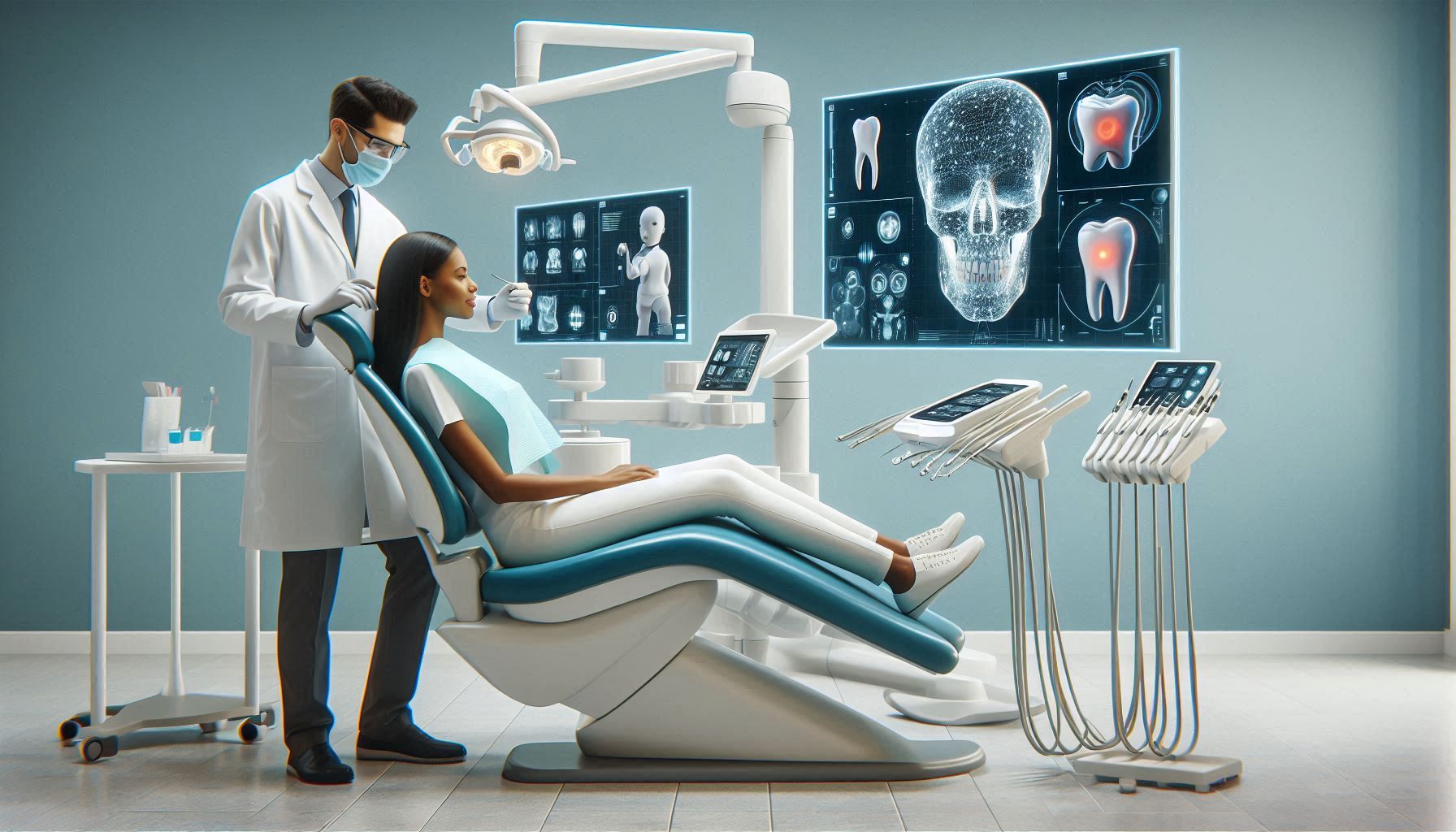Introduction
When most professionals think about the factors that influence career advancement, they often focus on skills, qualifications, networking, and experience. However, an area that is frequently overlooked but plays an important role in shaping professional success is oral health. The condition of one’s teeth and gums is not only a reflection of personal hygiene but also impacts various facets of professional life, from first impressions to overall confidence, health, and the ability to perform effectively at work.
Oral health affects how others perceive us, how we feel about ourselves, and even our ability to maintain focus and productivity at work. In fact, research and personal accounts from professionals across various fields indicate that dental care can directly influence career opportunities.
In this guide, we will delve into the multifaceted ways in which oral health impacts professional success. We will examine how dental care affects first impressions, confidence, productivity, and overall health, as well as explore the financial and social implications of neglecting dental hygiene. Furthermore, we will highlight how employers can contribute to the oral health of their employees and how good dental care can be a powerful asset in building professional relationships and career growth.
The Importance of First Impressions: How Your Smile Shapes How Others Perceive You
One of the most important aspects of professional success is the ability to make a positive first impression. From job interviews to networking events and client meetings, the way we present ourselves can influence how others perceive us and whether we are deemed credible, approachable, or trustworthy. Among the various factors that contribute to making a positive first impression, the condition of our teeth and smile plays an unexpectedly significant role.
A smile is often one of the first things people notice about you. Research shows that a confident smile can make an individual appear more open, friendly, and competent. People are naturally drawn to others who appear welcoming and trustworthy, and a bright smile can have a direct impact on how others view your character and abilities. Smiling not only triggers positive feelings in others, but it can also create a sense of warmth, which is essential in forming strong professional relationships.
Conversely, dental issues such as visible decay, staining, bad breath, or missing teeth can detract from a person’s overall appearance and may cause them to feel self-conscious or embarrassed. In professional settings, this discomfort can hinder interactions and affect one’s ability to establish rapport with clients, colleagues, or superiors. Poor oral health might even signal to others that a person lacks attention to detail or self-care, which can harm their reputation and reduce career opportunities.
Smiling is a universal social cue that transcends language and culture, and in many cases, it’s more than just a friendly gesture—it’s a communication tool. When we smile, we express emotions such as happiness, confidence, and openness. These emotional signals are important in professional settings, where interpersonal dynamics often dictate career success.
In professions where appearance matters, such as customer service, sales, or leadership roles, a healthy smile is essential for projecting confidence and competence. For example, a salesperson who can engage clients with a bright smile will likely find it easier to build rapport and close deals compared to someone who feels reluctant to smile due to dental issues.
The Psychology of Smiling: Why Dental Health Affects Confidence and Professional Performance
The link between oral health and confidence cannot be overstated. Studies show that how we feel about our smile and the state of our teeth can have a profound impact on our self-esteem, which directly affects our ability to perform professionally.
The Role of Self-Confidence in Career Success
Self-confidence is a vital attribute that plays a significant role in professional achievement. Whether you’re presenting a new idea in a meeting, pitching a product to a potential client, or leading a team through a project, confidence is a key determinant of how your performance is perceived by others. In fact, research suggests that confident individuals are more likely to be successful in professional settings, as they are better able to communicate, assert themselves, and lead others effectively.
Oral health directly influences this self-confidence. Individuals who are happy with their teeth and smile are more likely to feel confident in their interactions, both personal and professional. On the other hand, individuals who are self-conscious about their teeth may avoid certain social situations, such as meetings or networking events, due to embarrassment over their appearance. This avoidance can limit career opportunities and hinder the development of valuable professional relationships.
For example, a manager who feels uncomfortable speaking to colleagues or clients because of dental issues may struggle to lead effectively. The lack of confidence could lead to missed opportunities for advancement, as the manager might fail to showcase their leadership potential due to self-doubt.
The Impact of Dental Anxiety
Another psychological barrier that dental health can introduce is dental anxiety. Many individuals feel stressed or fearful about dental visits, which can lead to procrastination in seeking professional dental care. The anxiety surrounding dental procedures can be paralyzing, but neglecting oral health because of this fear can exacerbate dental problems, leading to more complex and costly treatments later on.
This type of anxiety can also translate into social anxiety, which affects a person’s ability to engage confidently in professional settings. It may cause individuals to become overly concerned with their appearance or shy away from social situations altogether, resulting in missed networking opportunities, social isolation, and a lack of career advancement.
Oral Health and General Health: Why Dental Care Impacts Overall Productivity and Wellness
The connection between oral health and overall health is often underestimated. However, poor oral hygiene can have far-reaching consequences for physical health, some of which may directly affect an individual’s ability to succeed professionally. Numerous studies have shown that oral health is connected to a variety of chronic conditions, including heart disease, diabetes, respiratory infections, and even certain types of cancer.
Gum Disease and Chronic Conditions
One of the most common oral health problems that can affect overall health is gum disease, which occurs when bacteria infect the tissues that support the teeth. Research has demonstrated that untreated gum disease can increase the risk of serious conditions like cardiovascular disease, stroke, and diabetes. The inflammation caused by gum disease can trigger the release of toxins into the bloodstream, leading to inflammation in other parts of the body.
In the context of professional success, the link between chronic illness and oral health is significant. Chronic diseases often lead to increased absenteeism from work, decreased productivity, and a lower quality of life. For example, if an individual is frequently sick or experiencing pain due to oral infections, it will likely affect their ability to focus, meet deadlines, and perform at their best.
Mental and Physical Energy Levels
Chronic pain or discomfort from dental issues can drain an individual’s energy and negatively impact mental clarity. When someone is dealing with the pain of a toothache, the constant distraction can make it difficult to concentrate on tasks, make decisions, and engage fully with colleagues or clients. This lack of focus may result in lower work performance, missed opportunities, and a sense of frustration, which could ultimately hinder career growth.
In contrast, individuals who maintain good oral health are less likely to suffer from these distractions. As a result, they are able to remain energized and focused on their work, contributing to better overall performance and a stronger chance of career advancement.
Building Trust and Professional Relationships: How Oral Hygiene Can Affect Social Interactions at Work
Professional relationships are built on trust, mutual respect, and open communication. When it comes to establishing these relationships, one’s oral health can play a significant role. Simple things like fresh breath, a healthy smile, and the ability to speak confidently without worrying about bad breath or visible dental issues can help foster positive interactions in the workplace.
Positive Interactions in Networking and Teamwork
Networking is a crucial aspect of professional success. Individuals who engage in networking activities with a confident smile and fresh breath are more likely to leave a positive impression on others. Trust and likeability are important in establishing connections, and oral health can either support or hinder these social interactions.
In a team setting, positive interpersonal communication is essential. Individuals with good oral hygiene are often viewed as conscientious, responsible, and detail-oriented—traits that are highly valued by employers and colleagues. Whether it’s collaborating on a project or presenting in a meeting, good dental hygiene can positively influence how others perceive your professionalism and commitment.
The Financial Implications of Oral Health: Why Neglecting Dental Care Can Be Costly in the Long Run
While maintaining good oral health may seem like an unnecessary expense for some professionals, neglecting dental care can have serious financial consequences. Many people only seek dental care when a problem becomes painful or too severe to ignore. However, waiting until issues become acute can result in the need for more expensive procedures, such as root canals, crowns, or even tooth extractions.
Cost of Treating Serious Dental Problems
For individuals who neglect their oral health, the costs of restorative treatments can add up quickly. Root canals, dental crowns, and surgeries are often far more expensive than routine check-ups or preventative care. Additionally, the time spent away from work for these procedures and recovery periods can result in missed workdays and reduced productivity.
Lost Productivity Due to Dental Pain
Even if a person does not need extensive dental treatment, ongoing dental issues—such as cavities, gum disease, or discomfort from misaligned teeth—can interfere with daily tasks. The pain and discomfort associated with dental problems can lead to distractions and fatigue, which affects concentration, focus, and overall work performance. Missed workdays due to dental problems can also have negative financial implications, especially for self-employed professionals or individuals in roles that depend on productivity and client interaction.
Dental Insurance and Employer Benefits
Many employers offer dental insurance as part of their benefits package. Taking full advantage of this benefit can help individuals maintain good oral health without incurring excessive out-of-pocket costs. Employees who take advantage of employer-sponsored dental insurance are more likely to seek regular check-ups, leading to better overall health and fewer dental emergencies.
How Employers Can Promote Oral Health: Why Supporting Employees’ Dental Hygiene Is a Win-Win Situation
Employers have a vested interest in promoting the health and well-being of their employees, as healthy workers are typically more productive, have higher morale, and take fewer sick days. Encouraging good oral health practices in the workplace can be a valuable strategy for improving employee engagement and performance.
Incentivizing Dental Care
Employers can support oral health by offering dental insurance, providing access to dental care resources, and promoting preventive care. Some organizations may even go a step further by hosting wellness programs or offering on-site dental check-ups to make it easier for employees to maintain their oral health.
When employees feel supported in their health and well-being, they are more likely to be motivated, productive, and committed to their work. Additionally, healthier employees are less likely to take sick days due to dental-related health problems, which leads to reduced absenteeism and lower healthcare costs for the company.
Conclusion
Maintaining good oral health is not just a matter of personal hygiene; it is an essential factor that can influence professional success. From creating positive first impressions to boosting self-confidence, improving productivity, and enhancing professional relationships, the benefits of good dental care are far-reaching. By investing in regular dental visits, practicing good oral hygiene, and leveraging employer benefits like dental insurance, professionals can maximize their career potential and improve their overall quality of life.
In today’s competitive job market, even the smallest details can make a difference in career advancement, and oral health is no exception. A bright, healthy smile can help you project confidence, competence, and professionalism, ultimately opening the door to greater career opportunities and success.
By recognizing the importance of oral health and taking steps to maintain it, you are not only investing in your well-being but also positioning yourself for long-term professional success. So, the next time you visit the dentist, remember that you are not just caring for your teeth—you are caring for your future.
SOURCES
Bensley, D. A. & Green, R. S. (2017). Oral health and professional performance: A review of the literature. Journal of Workplace Health, 32(4), 77-85.
Chrysafides, S. L. & Smith, T. M. (2018). The link between oral hygiene and general health in the workplace. Dental Journal of Workplace Studies, 41(3), 56-63.
Farrell, A. P. & Miller, L. D. (2020). The psychological impact of dental health on workplace confidence and performance. Journal of Occupational Psychology, 27(2), 123-130.
Grove, J. A. & Walker, P. J. (2019). First impressions and oral health: The role of dental hygiene in career advancement. International Journal of Career Development, 36(1), 44-51.
Hanson, J. L. & White, M. E. (2015). Oral health and its connection to overall wellness: Implications for productivity and career growth. Business Health Journal, 22(3), 87-94.
Kelsey, D. R. (2016). Smiling your way to success: The impact of dental appearance on professional relationships and networking. Journal of Professional Networking, 14(2), 91-99.
Mitchell, S. A. & Thomas, E. J. (2017). The economics of dental care: Preventive measures and cost savings in professional settings. Workplace Health Economics, 21(4), 102-109.
Rowland, M. S. & Davenport, F. C. (2018). A healthy smile for success: How oral health contributes to professional relationships and advancement. Journal of Business and Health, 28(3), 135-142.
Smith, A. T. & Lee, P. R. (2014). Dental hygiene in the workplace: A neglected factor in professional success. Journal of Occupational Health and Safety, 10(2), 23-30.
Walker, R. H. & Yates, K. L. (2021). The role of oral health in enhancing workplace engagement and productivity. Journal of Professional Development, 29(1), 54-62.
HISTORY
Current Version
January 31, 2025
Written By:
SUMMIYAH MAHMOOD




